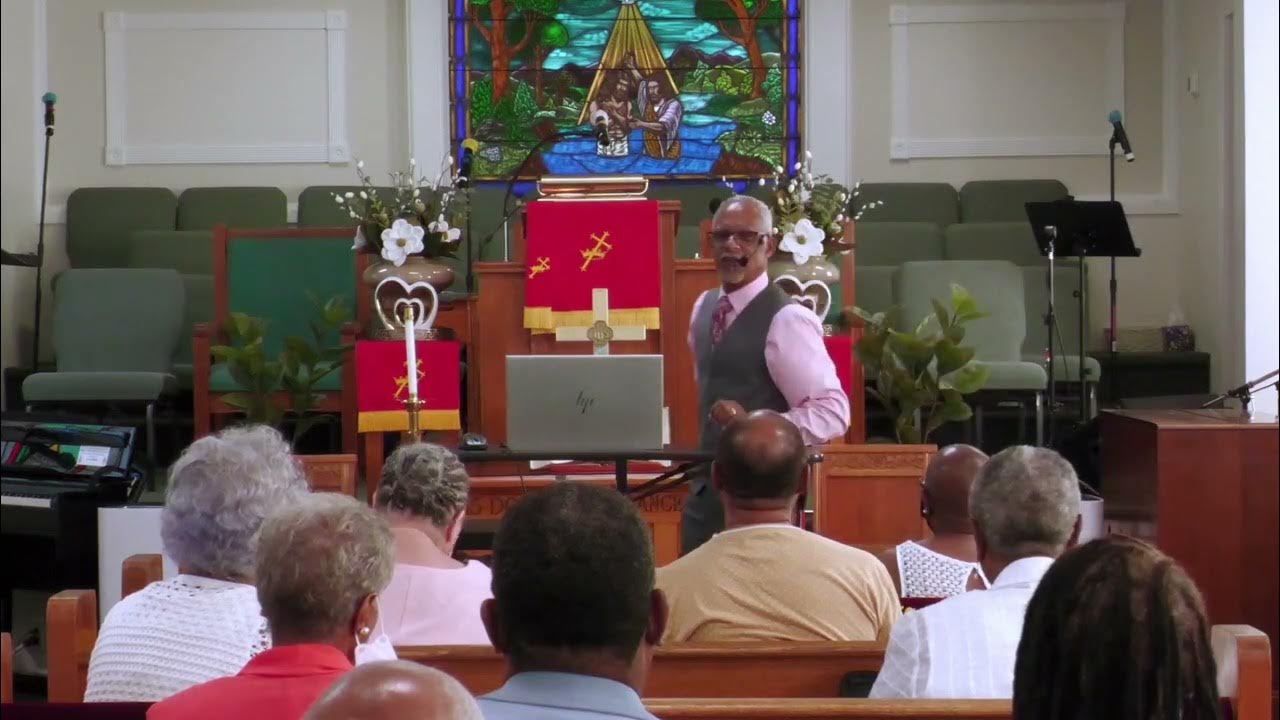The Difference Between Protestant and Orthodox Views | Jonathan Pageau
Summary
TLDRStephen Wong's transcript delves into the contrasting views on salvation between Protestants and Orthodox Christians. Protestants often emphasize the concept of substitutional atonement, where Christ's sacrifice absolves humanity of sin, leading to salvation through faith. In contrast, Orthodox Christianity sees salvation as a healing process, where Christ's presence in human nature combats the deathly effects of sin, with the ultimate goal being theosis—union with God and participation in divine life.
Takeaways
- 🔄 Protestants and Orthodox Christians have different views on salvation.
- 🌐 Many Protestants emphasize the concept of 'substitutional atonement', where Jesus' sacrifice is seen as a substitution for humanity's sin.
- 🍇 The idea of 'original sin' is central to the Protestant view, where Adam's sin affected all of humanity.
- 🔥 The Old Testament sacrificial system is seen as a precursor to Jesus' sacrifice in the Protestant perspective.
- 🙏 Salvation in Protestant belief is through faith in Jesus' sacrifice, which appeases God's wrath.
- 🌿 Orthodox Christians view salvation as a healing process rather than a legal transaction.
- 💉 The Orthodox perspective sees humanity as suffering from the consequences of sin, which is death and a tendency to sin.
- 🌟 Christ's role in Orthodox belief is to assume human nature and fill it with divine presence, offering healing.
- 🍞 Salvation involves participating in sacraments and living in communion and love, which are part of the healing process.
- 🛑 The Orthodox ultimate goal of salvation is theosis, the process of becoming united with God and participating in divine life.
- 🎓 The Orthodox do not see salvation as a declaration of righteousness but as a transformative journey towards unity with God.
Q & A
What is the central theme of the discussion in the transcript?
-The central theme of the discussion is the difference between Protestant and Orthodox Christian views on the concept of salvation.
According to the transcript, what is the Protestant view on the concept of 'substitution' in salvation?
-The Protestant view, as described in the transcript, is that of 'substitutional atonement' where Jesus took on the sins of humanity, acting as a substitute sacrifice, and belief in this sacrifice leads to salvation.
How does the transcript describe the Old Testament sacrificial system in relation to sin and salvation?
-The Old Testament sacrificial system is described as a way to compensate for humanity's sin, offering things instead of oneself to God to avoid the deserved death due to sin.
What is the Orthodox Christian perspective on salvation as presented in the transcript?
-The Orthodox Christian perspective on salvation is described as a healing process, where Christ's presence in human nature helps in overcoming the effects of sin and death, leading to a life of communion and love.
What is the concept of 'theosis' mentioned in the transcript, and how does it relate to the Orthodox view of salvation?
-Theosis is the ultimate goal of salvation in the Orthodox view, which is the process of becoming united with God, participating in His divine life to the extent possible.
How does the transcript explain the impact of Adam's sin on humanity according to the Orthodox Christian view?
-According to the Orthodox Christian view in the transcript, Adam's sin introduced death into the world, creating a state of being where the body is in danger and prone to sin due to various desires.
What role do the sacraments play in the Orthodox Christian view of salvation as per the transcript?
-In the Orthodox Christian view, sacraments play a crucial role in the healing process of salvation, allowing individuals to participate in Christ's presence and thus heal from the effects of sin.
How does the transcript contrast the Protestant and Orthodox views on the role of faith in salvation?
-The transcript contrasts the views by stating that while many Protestants believe in salvation by faith in the substitutionary sacrifice of Christ, Orthodox Christians see salvation as a healing process that involves participation in the sacraments and love for others.
What is the significance of participating in communion according to the Orthodox Christian view in the transcript?
-Participating in communion is significant in the Orthodox Christian view as it is a means of healing and participating in the divine life of Christ, contributing to the process of salvation.
How does the transcript describe the process of overcoming sin and its effects in the Orthodox Christian view?
-The transcript describes the process as one of healing from passions and desires through participation in the sacraments, love for others, and ultimately achieving theosis, or union with God.
Outlines

このセクションは有料ユーザー限定です。 アクセスするには、アップグレードをお願いします。
今すぐアップグレードMindmap

このセクションは有料ユーザー限定です。 アクセスするには、アップグレードをお願いします。
今すぐアップグレードKeywords

このセクションは有料ユーザー限定です。 アクセスするには、アップグレードをお願いします。
今すぐアップグレードHighlights

このセクションは有料ユーザー限定です。 アクセスするには、アップグレードをお願いします。
今すぐアップグレードTranscripts

このセクションは有料ユーザー限定です。 アクセスするには、アップグレードをお願いします。
今すぐアップグレード関連動画をさらに表示
5.0 / 5 (0 votes)






